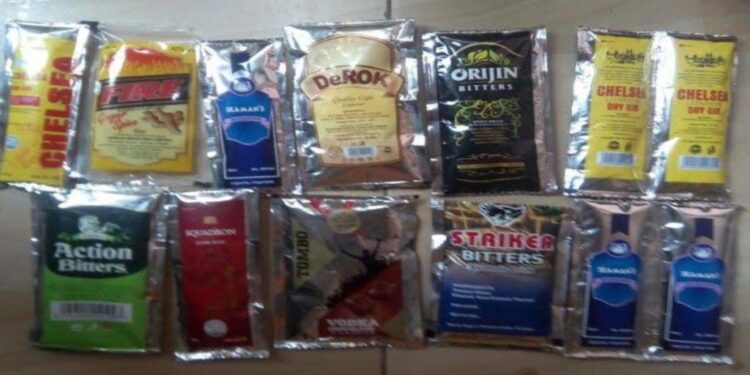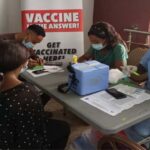
The Distillers And Blenders Association Of Nigeria has said that investments worth over N1.2tn will be lost while 5.5 million direct and indirect workers would be out of jobs if the Federal Government insists on the recent ban implemented against the production and sale of sachet and PET bottle alcohol in the country.
DIBAN, a sub-sector under the Manufacturers Association of Nigeria, stated in an open letter addressed to President Bola Tinubu.
In the letter dated February 18, 2024, DIBAN noted that on January 31, 2024, the National Agency for Food and Drug Administration and Control placed an outright ban on the production and sale of alcoholic beverages in sachets and PET bottles.
The reasons given by the regulator were that the packaging of alcoholic beverages in sachets and pet bottles was responsible for the increase in alcoholic use among underage and that the packaging of alcoholic beverages in sachets and pet bottles increases the use of hard drugs.
In its pushback, DIBAN argued that NAFDAC had no legal or moral justification for placing an outright ban on the production of alcoholic beverages in sachets and pet bottles.
It said the alcoholic beverages were not produced or manufactured with hard drugs contrary to the assertion of NAFDAC.
The distillers also noted that there were no reports from the National Drug Law Enforcement Agency to support the position of NAFDAC that the alcoholic beverages in sachets or pet bottles contain any hard drugs.
DIBAN said it had a conglomerate membership of over 24 corporate organisations mostly indigenous companies with few multinationals and are into production and manufacturing of wines and spirits with over 70 per cent local inputs.
The letter read in part, “DIBAN’S investment is worth over N500bn. Indirect investments of other companies having one business or the other to do with DIBAN is also worth over N800bn.
“DIBAN’S contribution to the economy of Nigeria is worth over N1.2tn. There are over 500,000 employees in the direct employment of DIBAN. DIBAN also provided indirect employment or work for over 5 million people.”
According to DIBAN, when NAFDAC first hinted at the ban, the association had spent over N1bn to support various media, advocacy and campaigns in various media outfits both print and electronics to ensure consumption of alcoholic beverages among our youth is not allowed no matter how little.
It further argued that bigger sizes encourage the consumption of bigger portions, while small sizes encourage portion control because it is logical that if you buy small you consume small but if you buy big you consume big.
“If NAFDAC takes away small sizes, the Agency is simply encouraging excessive consumption of alcoholic beverages,” it said.
Suggesting the way forward, DIBAN urged the president to issue a directive to NAFDAC or an Executive Order immediately lifting the ban by NAFDAC on the production of alcoholic beverages in sachets and pet bottles.
It also called for the establishment of licensed liquor stores/outlets by Local Government Areas across Nigeria.
DIBAN posited that rather than implement an outright ban, the government should see to increased monitoring and compliance checks by NAFDAC, FCCPC, NDLEA and other Government Agencies to ensure strict product quality in terms of contents and safety.
It warned that if nothing is done to reverse the status quo, investments worth N1.2tn while 5.5m people will be thrown out of jobs.
“The Federal and State Governments will lose huge revenue streams from Excise Duty, VAT, PAYE, Corporate Tax and other revenues that should have accrued to these Governments,” DIBAN said.
On February 1, 2024, NAFDAC began the implementation of an earlier announced ban on sachet and PET bottle alcohol.
The Director-General of NAFDAC, Mojisola Adeyeye, said the ban was a collective recommendation of a committee and listed representatives in the committee as the Federal Ministry of Health, NAFDAC, and the Federal Competition and Consumer Protection Commission.
MAN, on its part, countered the claim by NAFDAC, insisting that its members were not on board with the decision to ban products belonging to the blacklisted category.





